You like to think you’re all special. You think you’re engaged, thoughtful, doing your part by recycling all your bourbon bottles and buying free-trade coffee and always showering with a friend because hey, you actually care about the drought, mostly.
And why? Because these things matter. Choices matter. “Be the change you want to see in the world,” someone – I think it was probably Beyoncé – once said. Damn straight, girl.
But you are also not stupid. You know there’s a bit more to saving the planet than composting your dryer lint and flipping off Taco Bell every time you pass by (but by all means, do it anyway). You understand that the sometimes only way serious, lasting change can happen is when it happens at scale, from the top of capitalism’s ruthless food chain on down. Sad but true.
You know, for example, that sometimes it requires the faceless CEO of a massive retailer based somewhere in Issaquah to decide it’s time to dump the chemicals and start selling organic food in their various megastores – lots and lots of it, historic amounts, even – and boom, farmers for 1000 miles convulse and consumers flock and the world lurches forward, sort of, a little, because capitalism.
Right? So it is that somehow, while you weren’t looking, while Whole Foods was busy opening lavender-misted gluten-free cookie lounges, big ol’ Costco wholesale, that glorious bulk-shopping dystopia that lets you walk in with a quivering soul and walk out with a 75” TV and a hot tub and a 10 gallon vat of olive oil and 4,000 licorice whips and also some sushi and car tires and a coffin, Costco has somehow become the biggest organic grocer in America.
You read that right. According to one investment bank, anyway, Costco’s organic sales – some $4 billion annually – is now bigger than Whole Foods. Certainly far bigger than nasty ol’ Walmart, which is a weird thing to write given how Walmart is, despite all their “green” improvements, slightly improved wages and organic efforts, still very much the devil.
It’s one of those things you have to acknowledge. Whole Foods may have innovated the category, but it’s discount places like Costco that really make it go. The Issaquah giant is moving a lot of organic product, unprecedented in American history. Of course, they’re also moving a ton of disgusting, cancer-causing garbage food, too.
Question is, does it matter? Is it making a difference?
Of course it is. That much organic product in the pipeline only further normalizes the concept, makes it easily available, affordable, friendly to the average consumer. It also completely transforms the supply chain, all the way back to the soil itself. Farmers use less chemicals. Fields are happier. Animals, bodies, kids, air and water tables, too.
Well, sort of. It ain’t all organic peaches and grass-fed cream, of course. You can argue that “organic” as a worthwhile movement has been, thanks to the lame FDA, gutted beyond recognition, and that tons of organic produce is now hauled in from faraway farms in Mexico, which translates into both a massive carbon footprint and serious environmental/labor problems we hear nothing about (we’re not the only ones going through a drought, for example).
Nevertheless, it’s still kind of amazing. Organic is no longer some sort of rarified, precious commodity reserved for the 1%. And while “organic” doesn’t necessarily mean sustainable, or local, or non GMO, it does mean free of certain pesticides and growth hormones – which is, as we like to say in America with a bittersweet shrug, better than nothing.
The upshot? Yes, your choices matter. After all, Costco wouldn’t be making billions on organics if the market wasn’t there, and it was almost certainly all us “hippie lefties” who, slowly but surely, alerted the dogs of capitalism that there’s real money to be made in not poisoning people.
Does Costco give a damn about the planet? The soil? Farmers? Maybe. Doubtful. Organics are just a nice, new profit sector. And to be sure, ruthless monoliths like Walmart aren’t going green because they want a better future; they’re doing it because they know we’ve screwed the planet beyond recognition, and they gotta try and shore up their precious supply chain.
So, how do you hold it all? What’s your feel for this sort of news? Mixed blessings? Doomed no matter what? Glimmers of positivism and hope? Some of each? I’m with you.
Doesn’t hurt to try and stay positive. After all, companies from Chipotle to McDonald’s are improving pay and benefits for employees, due to pressures both political and PR. And thanks to the godawful SCOTUS and evil trolls like the Koch brothers, the entire country pretty much hates the idea that corporations are now people – and the corporations know it.
Maybe this is why there’s also a rather amazing new trend in corporate responsibility popping up, something called a B Corp, which has become a much-desired designation for truly progressive companies who really do wish to meet certain (quite strict) standards for sustainability, fairness and transparency, both because it’s the right thing to do, and because they still want to be relevant in, you know, ten years.
Could such a trend catch on? Take over the discussion? Could a behemoth like Costco ever become a B Corp? Is a nascent, but palpable revolution at hand?
It’s nice to think so. After all, the planet sure as hell isn’t going to wait much longer.
Read more here:: The terrifying truth about Costco’s organic food




